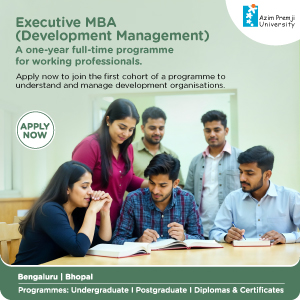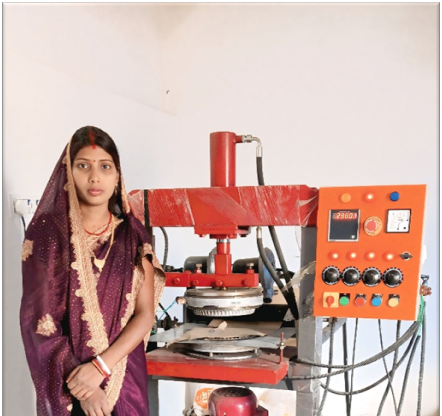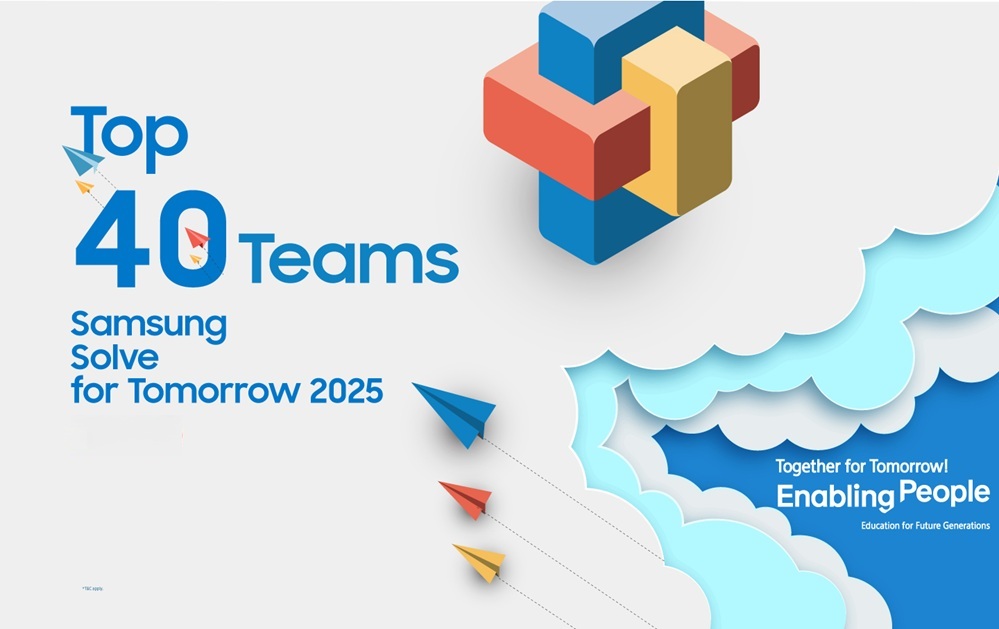Subscribe our Weekly Newsletter
Applications Invited for Global Sport Impact Fund (GSIF)

Organization: Coalition for Sustainable Development through Sport
Apply By: 30 Sep 2025
Grant Amount: 1500000 Euro
About the Organization
The Coalition for sustainable development through sport (hereinafter “the Coalition”) was launched under the leadership of Public Development Banks (PDBs) in November 2020 in close collaboration with a selection of partner organisations.
Coalition’s members pledge to strengthen their financial resources, investments and expertise to build a sustainable world together, in line with the United Nations Sustainable Development Goals (SDGs).
The Coalition’s ambition is to expand over time by bringing in more PDBs and by fostering partnerships with other stakeholders and coalitions that share its vision, and are willing to contribute their diverse resources and abilities, including from the private sector, civil society, governments and academia.
Main commitments of the Coalition:
- Get along with a common vision and principles on the economic, social and environmental power of sport
- Intensify the positive human, social, economic and environmental for more cooperation in sport for development
- Support projects that make sport a tool for human and sustainable development at national and regional levels
- Create a positive economic, social and environmental legacy and contribute to peace and solidarity, in particular through major international sporting events
About the Grant
This call for expressions of interest aims to identify a first pool of eligible, promising, and technically feasible projects that may constitute the initial investment pipeline of the GSIF. To be considered, projects must demonstrate a credible revenue-generation model, even if supported by patient or concessional financing structures. While the Fund maintains a strong impact-first orientation, it will only support projects that present a realistic capacity to repay the financing provided, aligned with their operational model and context. Initiatives relying exclusively on grant-based income models will not be eligible for financing through the GSIF’s core investment instruments.
The purpose of the EOI is to:
- Prepare a high-quality project pipeline ahead of the Fund’s first closing
- Identify investment-ready opportunities or projects needing targeted technical structuring
- Build confidence and transparency with future investors and partners
- Accelerate the future deployment phase of the Fund (post-closing)
Priority Project Types:
The GSIF will focus on four strategic categories of investment that collectively reflect the Fund’s ambition to deliver measurable social impact, promote inclusion, and foster sustainable development through sport. Each category combines a strong developmental rationale with the potential for longterm sustainability, understood in its financial, social, and environmental dimensions:
- Financial sustainability, through revenue generation, cost recovery, or productivity gains;
- Social sustainability, through improved health outcomes, inclusion, and reduced public costs (e.g. in health or education);
- Environmental sustainability, through reduced ecological footprints, improved resilience, and climate adaptation.
This integrated approach ensures that all supported projects contribute not only to impact, but also to lasting, replicable and scalable transformation across the sport ecosystem.
Inclusive community sports infrastructures
- This category refers to projects involving the creation or rehabilitation of sports facilities that are at least partially accessible to the public, such as local fields, multipurpose courts, or open-air gyms. These projects may be implemented in collaboration with municipalities, community-based organizations, or social enterprises, and are encouraged to adopt blended management models that combine financial sustainability with inclusive access. This may include, for example, conditional lease agreements based on access targets, or mixed-use models (e.g. private / public use), allowing for a balanced allocation of services between community benefit and cost recovery.
- These infrastructures notably help to promote physical activity, enhance health and well-being, strengthen youth engagement, and foster social cohesion, particularly in underserved or high-risk neighborhoods with an emphasis placed on inclusive design, gender equity, and integration into the local social fabric.
- Investment rationale:
- Expand universal access to sport and physical activity
- Provide safe and inclusive public spaces for youth and vulnerable groups
- Strengthen local social cohesion through shared infrastructure
- Improve physical and mental health through regular activity
- Foster community ownership and civic engagement
- Ensure inclusion through design (gender, disability, free access…)
- Generate local economic opportunities through job creation and support for local service ecosystems (e.g. maintenance, coaching, security, event logistics, equipment rentals, ancillary services).
- Where possible, the Fund will prioritize projects that integrate sport infrastructure into broader community hubs, combining sport with education, health, entrepreneurship, or cultural services. Special attention will also be given to blended community models that link grassroots sport infrastructure with micro and small enterprise development, creating inclusive local economies anchored in sport-based social infrastructure.
Human Capital development initiatives
- This category refers to projects involving the development of residential or semiresidential academies that integrate formal education with structured sports training, as well as vocational training programs, life-skills curricula, and professional certification initiatives designed to strengthen the sport-fordevelopment talent pipeline and ecosystem.
- By adopting a wider lens on human capital development, this category recognizes the need to invest in the entire skills ecosystem, beyond athletes alone, to ensure a diverse, professionalized, and inclusive sport sector.
- Investment rationale:
- Integrate quality education and athletic training into dual career pathways
- Develop life skills such as leadership, discipline, and teamwork
- Enhance youth employability through vocational or technical modules
- Promote equal opportunities for girls and youth from marginalized or underserved backgrounds
- Support the emergence of local and regional role models through inclusive sport programs o Strengthen the broader sport value chain by investing in training for coaches, sport managers, technicians, and administrators
- Facilitate public-private partnerships in sport, education, and professional training delivery
Multifunction sport and wellness complexes
- This category refers to projects involving the establishment or upgrade of urban or peri-urban hubs that combine sport infrastructure with a broader ecosystem of community-oriented services. These may include wellness and fitness offerings, event facilities, health and education components, co-working spaces, and dedicated zones for micro, small and medium enterprise development.
- These integrated complexes are often designed as inclusive lifestyle and economic anchors within their communities and are conceived as blended-use public-good assets that combine infrastructure development, enterprise incubation, and social cohesion, and can be structured through public-private partnerships with municipalities, local stakeholders, or social enterprises.
- Investment rationale:
- Create sustainable, multi-use ecosystems that combine sport, wellness, and services
- Stimulate local economic development through job creation and SME engagement o Promote healthy and active lifestyles across all demographics
- Diversify revenue streams to ensure long-term financial viability
- Provide venues for sports events, cultural programming, and community gatherings
- Serve as urban showcases for social innovation and inclusive design
- Enable long-term partnerships through PPPs or performance-based contracts
Community-based sport for development programs
- This category refers to projects involving the design and delivery of structured programs that leverage sport as a tool for social transformation, typically implemented by NGOs, grassroots organizations, or community networks. These initiatives prioritize behavioural change, social inclusion, and community resilience. Each project must articulate its theory of change and demonstrate how outcomes can be tracked and valued, using either standardized frameworks or tailored monitoring approaches.
- To facilitate impact measurement and resource allocation, projects will be categorized based on their primary social outcomes, aligned with internationally recognized taxonomies:
- Peacebuilding & social cohesion: initiatives promoting dialogue, conflict resolution, and intergroup trust through sport.
- Gender equality & girls’ empowerment: programs enhancing access, safety, and leadership opportunities for women and girls.
- Disability inclusion: adapted sport initiatives fostering participation and autonomy for people with disabilities.
- Mental health & wellbeing: projects addressing trauma, stress, and emotional resilience through structured physical activity.
- Youth leadership & employability: life-skills programs using sport to build confidence, teamwork, and pathways to employment.
- Each project must demonstrate:
- A viable and context-appropriate financing model, combining diversified revenue streams and/or blended funding mechanisms, and demonstrating a credible capacity to repay the financing provided under the GSIF investment instruments.
- For community-based sport for development programs a minimum 3-year track record is required with the ability to document and track social outcomes using tailored M&E tools (SROI, behavioural indicators).
- Strong commitment to inclusion, gender equity, and sustainability.
- Investment rationale
- Use sport as a tool for social transformation in fragile or excluded settings
- Build psychosocial skills such as confidence, resilience, and non-violence
- Promote inclusion of girls, persons with disabilities, and minority groups
- Improve school attendance, access to health, and rights awareness
- Support peacebuilding, inter-community dialogue, and tolerance
- Strengthen grassroots organizations through technical assistance and formalization.
Who can Apply
The Fund embraces the principles of blended finance, aiming to crowd in public, philanthropic, and private capital toward high-impact sport-for-development projects. As such, a wide range of institutional applicants may be eligible, provided they meet the Fund’s criteria for impact alignment, financial sustainability, and governance.
Lead applicants may include:
Public authorities or entities
- Local or municipal governments
- National or regional government bodies (e.g. ministries, sport agencies)
- State-owned enterprises or public operators
Civil society organizations
- NGOs, foundations, or community-based organizations with legal status
- Must demonstrate fiduciary capacity and implementation track record
Sport federations / Olympic committees
- Must operate under a non-profit or public legal structure
- Eligible only if the project clearly serves a public interest, with a strong developmental and social impact rationale;
- Structure subject to enhanced governance, accountability, and impact transparency requirements, including: • A clearly defined social mission, preferably embedded in the entity’s legal statutes;
Social enterprises / private operators
- Asset lock mechanisms, ensuring that profits and assets remain dedicated to the with restrictions on dividend distribution and provisions for asset allocation in case of wind-downs;
- Impact reporting obligations aligned with the Fund’s MEL framework;
- Inclusive governance (e.g. representation of beneficiaries or independent stakeholders in advisory boards or oversight structures).
PPP consortia
- Eligible as long as one party takes lead accountability and the governance model ensures alignment with impact targets
- May involve a private developer, municipality, and/or non-profit partner
How to Apply
All submissions must be made through the GSIF EOI online application form available here : https://gsif.coalition-sport.org
At this stage, applications may be submitted in English, French, or Spanish. Additional languages may be accepted at later stages of the selection process, including due diligence and final structuring.
Deadline for submission: September 30, 2025, 6:00pm GMT
For any questions or technical issues, please contact: secretariat@coalition-sport.org and gsif@sport-impact.org
For more information please check the Link
Stay in the loop with the newest RFPs and Grants through NGOBOX's WhatsApp Channel. Join now by clicking here!
Latest Online Store
Latest Tenders And EOIs
Latest News
© Renalysis Consultants Pvt Ltd














 (4).png)













